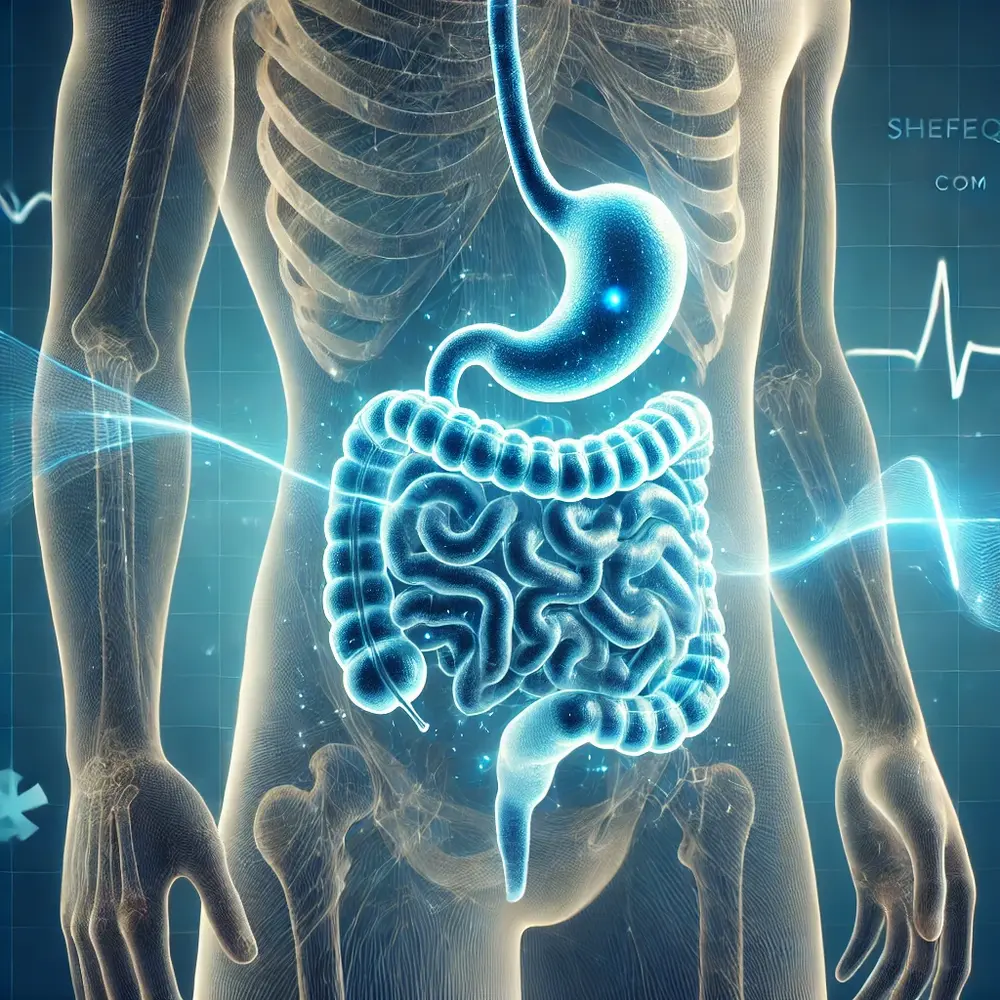Introduction
In recent years, the concept of healthy eating and dieting has brought widespread attention to the method of intermittent fasting, particularly the 16:8 approach. This practice involves abstaining from food for 16 consecutive hours each day, followed by an 8-hour eating window. Research indicates that this dietary pattern has a positive impact on various organ systems, particularly the digestive system. This article explores in detail how 16-hour intermittent fasting affects digestion, outlines its potential benefits, and discusses necessary precautions.
1. Gastric Secretion and the Digestive System
One of the primary roles of the gastrointestinal system is to break down food and convert it into absorbable nutrients for the body. During intermittent fasting, the production of gastric acid is somewhat reduced, which lowers the risk of irritation to the stomach lining. Normally, continuous food intake throughout the day leads to constant acid secretion. However, when food intake is restricted, this process is regulated, thereby reducing the digestive burden.
Additionally, this eating pattern helps normalize stomach acid levels and may reduce the risk of acid reflux and gastroesophageal reflux disease (GERD). Nevertheless, in some individuals, prolonged fasting can lead to excessive acid accumulation and a burning sensation. Therefore, it is important to approach fasting with caution and consider individual health conditions.
2. Gut Microbiota and Gastrointestinal Cleansing
Gut microbiota plays a crucial role in overall health. The intestines host trillions of bacteria, some of which are beneficial and support proper digestion. A 16-hour fasting window can regulate the microbiome and promote the growth of good bacteria.
Intermittent fasting also facilitates the elimination of harmful bacteria and toxins from the body. This cleansing process is known as autophagy, which helps regenerate cells and repair intestinal walls. Autophagy also reduces inflammation and contributes to improved digestive function.
3. Constipation and Digestive Rhythm
Regular bowel movements are essential for intestinal health. Intermittent fasting can help regulate bowel movements by giving the digestive system a period of rest, which may improve efficiency.
However, there is a risk of constipation, especially if water intake is inadequate during fasting periods. Maintaining optimal digestive function requires proper hydration and fiber-rich foods. If fasting leads to constipation, increasing water consumption and incorporating probiotics and natural fibers are recommended.
4. Intestinal Peristalsis and Gastric Emptying Time
During fasting, the movement (peristalsis) of the stomach and intestines changes slightly. Under normal conditions, the digestive tract becomes active after food intake. However, during prolonged fasting, these movements slow down as a way for the body to conserve energy.
At the same time, intermittent fasting helps stabilize insulin levels. When insulin levels are low, the digestive system is not overwhelmed, making the digestion process smoother. This is especially beneficial for individuals with insulin resistance or diabetes.
5. Stomach Ulcers and Acid-Related Issues
For some individuals, extended fasting may aggravate existing stomach issues. People suffering from ulcers or gastritis may experience burning sensations and stomach pain during fasting. The reason is that even without food, the stomach continues to produce acid, which may irritate the empty stomach lining.
It is strongly recommended that individuals with such conditions consult a physician before starting intermittent fasting. Additionally, consuming acidic foods like lemon water on an empty stomach can worsen irritation and should be avoided.
6. Inflammation and Stress Reduction
A 16-hour fasting routine may help reduce inflammation in the gut. Intermittent fasting has been shown to lower inflammatory markers and support a stronger immune response.
Moreover, giving the digestive system time to rest helps restore its functional health. Constant digestion without breaks can overburden the system and lead to chronic inflammation. Fasting offers an opportunity for the system to recover and rejuvenate.
Conclusion
Intermittent fasting following the 16/8 method can positively impact the gastrointestinal system. It supports the balance of gut microbiota, eases digestion, and aids in cleansing the digestive tract. Additionally, it helps regulate intestinal movements, reduces the risk of constipation, and maintains stable insulin levels.
However, this method may not be suitable for everyone. Individuals with stomach ulcers or gastritis should be especially careful. When adopting intermittent fasting, it is essential to stay well-hydrated, eat a diet rich in fiber, and seek medical advice if needed.

